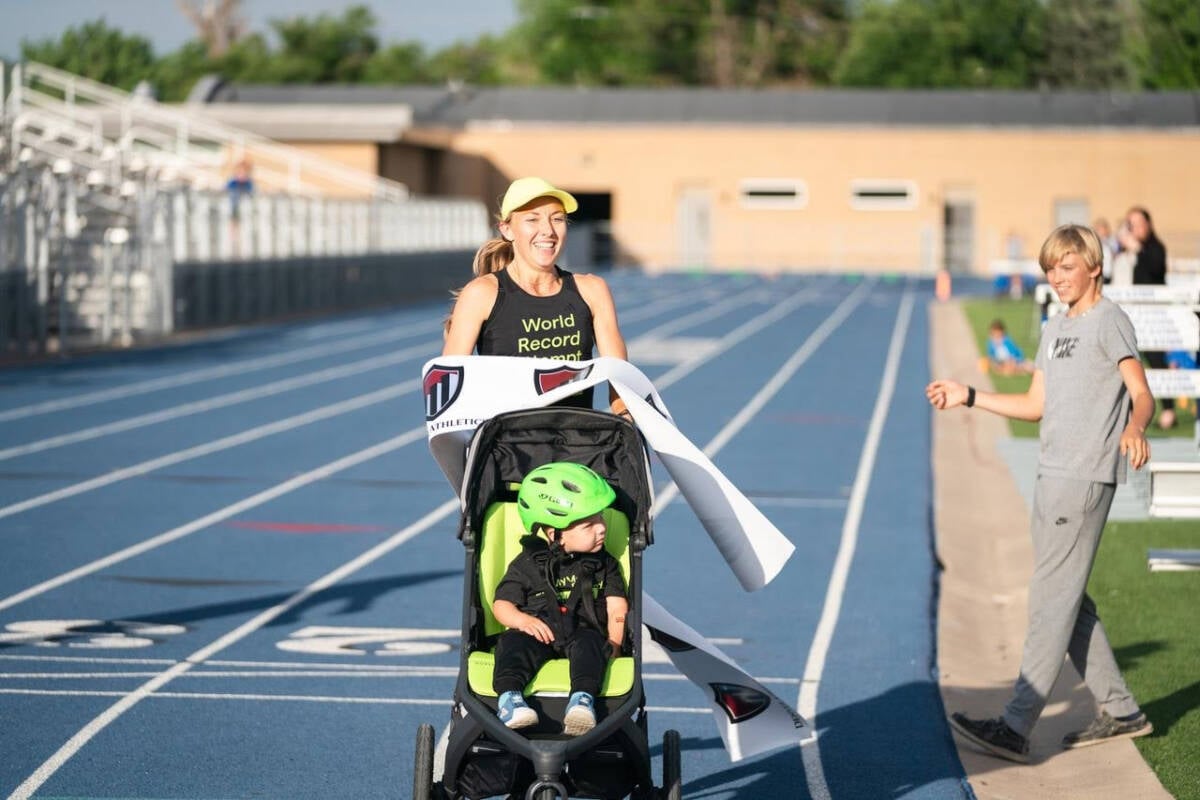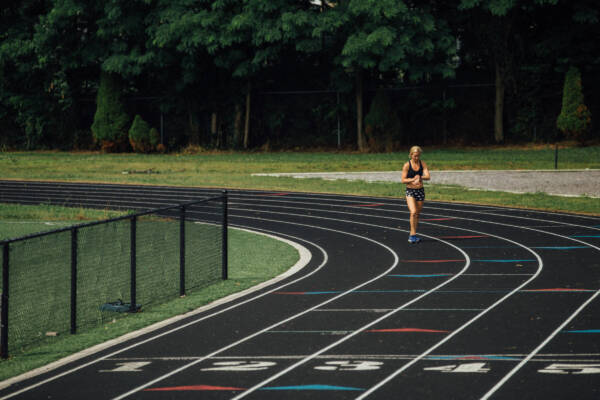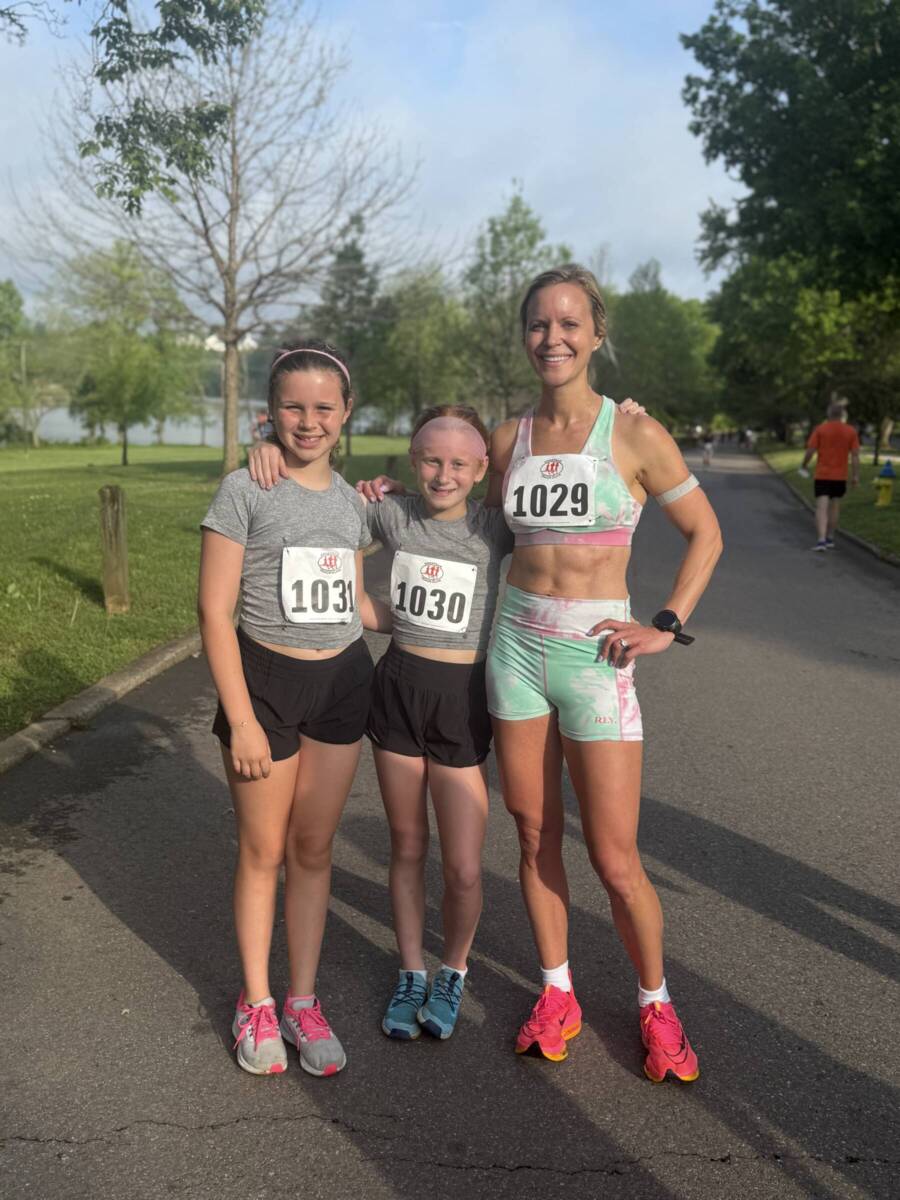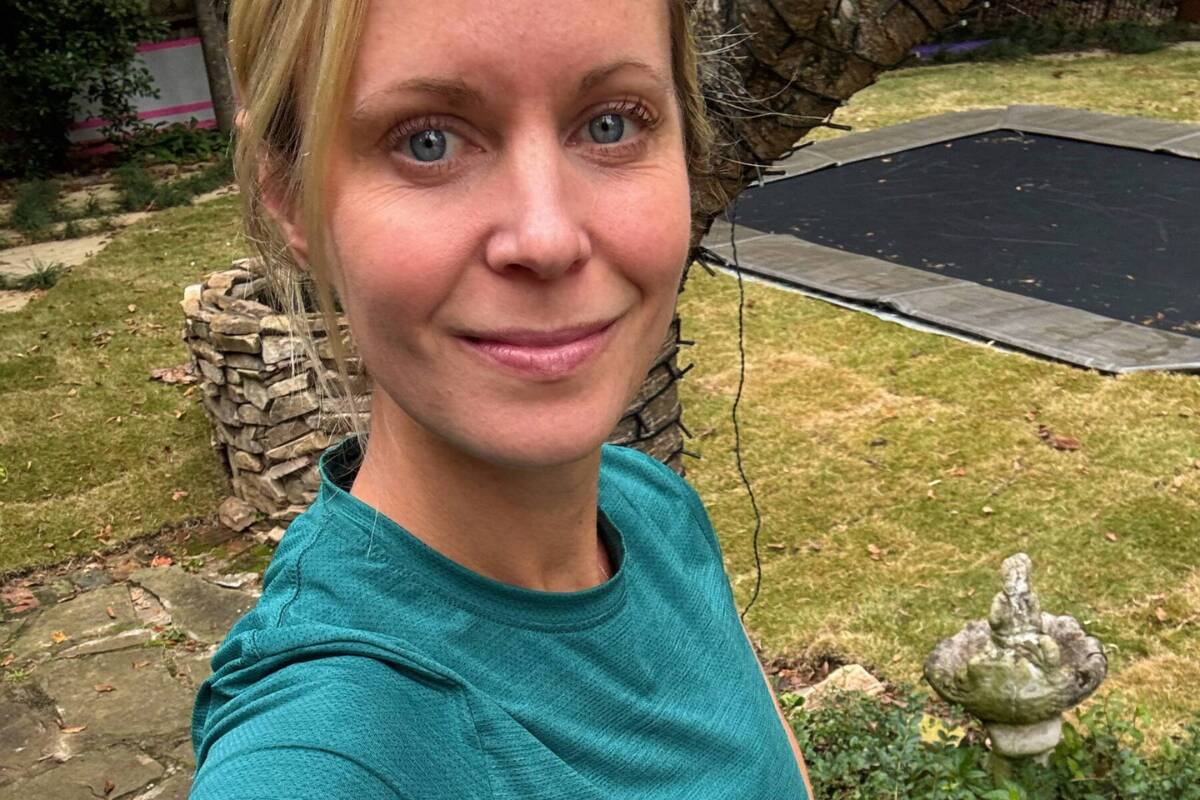Can Sleep Deprivation Lead to Running Injuries?
When I tore my hamstring in 2019 while training for a marathon, it didn’t occur to me until much later that sleep deprivation may have led to my running injury. Now research is supporting that sleep for athletes is crucial for injury prevention.
In the summer of 2019, my mileage doubled from about 50 miles a week to 100 miles a week. I was shooting my only shot of trying to qualify for the 2020 Olympic Trials Marathon.
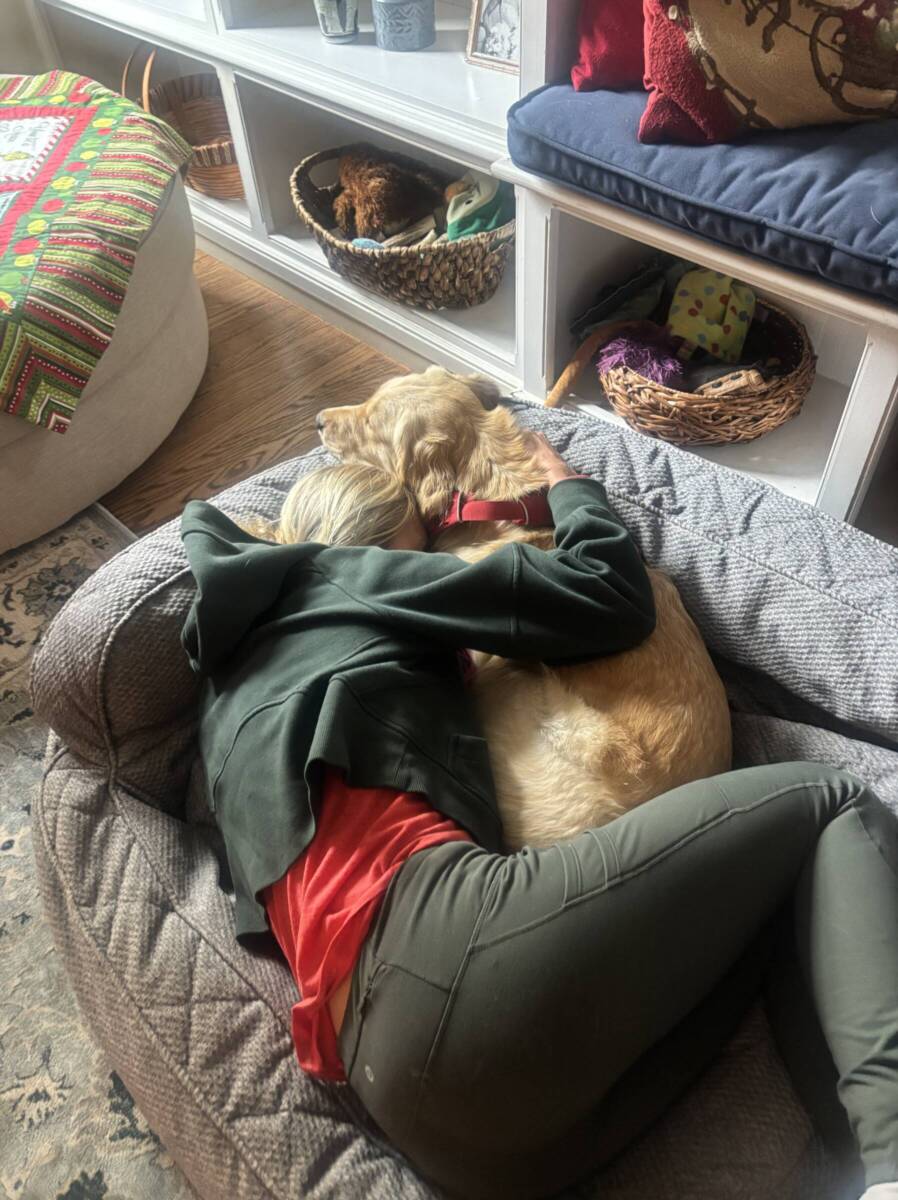
Table of contents
- My Struggle with Sleep and Running Injuries
- How can sleep deprivation increase running injury risk ?
- What does the research say about sleep and athletes?
- What happens when we sleep?
- Do runners need more sleep?
- Do you need more sleep is you need more?
- How can you tell if you are getting the right amount of sleep?
My Struggle with Sleep and Running Injuries
During this time, my son was still very young and not sleeping well. It would take him forever to settle down and wanted me to sit with him until he fell asleep.
I would sit in that chair with him for well over an hour most nights and try to gently lay him in his crib only for him to wake up and the process to restart. He’d also wake several times in the night and would need me to soothe him back to sleep. Then, it would be time for me to get up and train, work, and parent. Do all the things.
Looking back on it now, it’s no wonder I got injured. I felt tired most of the time and instead of owning that I needed more sleep for all I was doing, I felt weak. I felt like other people were doing more and not needing as much sleep as me.
Many lessons have been learned since including the importance of sleep for athletes. And now, I am careful to ensure I get enough sleep. Because now I know that athlete sleep is critical for better performance, recovery, and injury prevention, and is just an overall nicer mom and person.
In this article, I survey the research on sleep and running injury prevention and speak to sleep expert Nicole Shallow on about the importance of sleep for athletes plus tips to improve your sleep. (Listen to my interview with Shallow on The Passionate Runner podcast!).
How can sleep deprivation increase running injury risk?
Runners secrete human growth hormone (HGH) when they sleep. This is when the damage from your running gets repaired and your body builds back stronger. This hormone secretion helps your body with:
- protein synthesis
- muscle recovery
- immunity function and
- inflammatory response regulation.
When we don’t get quality sleep from nighttime disturbances, or late training sessions or early wake-ups for training or work, we disrupt this healing cycle, putting us at risk for injury along with more emotional dysregulation, decreased motivation, and feeling of fatigue/tiredness, says Shallow. I know I definitely feel this when I don’t get a solid 7-8 hours a night.
What does the research say about sleep and athletes?
Research shows a connection between lack of sleep and the following:
- Injury and sleep. A study in the Journal of Science and Medicine in Sport looked at 95 endurance athletes, including runners, for a year. They found that the biggest increase in injuries were on those who got less than 7 hours of sleep a night. Another study in Current Sports Medicine Reports also found that less than 7 hours of sleep per night consistently increases injury risk 1.7 times.
- Pain and sleep. A meta-analysis in Current Sports Medicine Reports found that less than 7 hours of sleep a night can lead to the increased sensation of pain, and suggests sleep be part of an athlete’s recovery plan.
- Athletic performance and sleep. A study in the Scandinavian Journal of Sports Medicine found that lack of sleep negatively impacts strength, speed, and endurance in athletes.
- Bone loss and sleep. Another study in the Journal of Bone and Mineral Research found that postmenopausal women getting less than five hours per night had lower bone density compared to women who slept seven hours per night or more.
- Bad mood and sleep. Research in Physical Therapy in Sports found sleep problems can lead to mood disturbances and general health complaints.
- Fatigue and sleep. More research for the Institute of Sport and Preventative Medicine finds a connection between sleep loss in athletes and fatigue, depression, and anxiety.
- Mental acuity and sleep. Other studies have found suboptimal sleep affects a variety of cognitive factors ranging from executive function, attention, learning, mental performance, and mental health.
Note: This is just the tip of the iceberg though when it comes to the negative effects lack of sleep has on our health and wellbeing
What happens when we sleep?
We heal when we sleep—both mentally and physically. As Shallow explains, there’s not a single system in our bodies that does not benefit from sleep.
“Sleep takes all that we did that day and helps flush everything out, remove the junk so that we are sparkly new in the morning,” she explains.
And sleep is not created equal. We go through different sleep stages that accomplish different things in your recovery. This why some days you feel zonked even though you went to bed at the same time and woke up at the same time, or if you woke up earlier than usual and you feel edgy and terrible.
That’s all rooted in the type of sleep (sleep quality) you got the night before. So, let’s take a closer look at what happens when you sleep at night.
The anatomy of your sleep cycle
While there are variations in the architecture of sleep, here is the anatomy of a typical sleep cycle:
- Start in alert phase
- You cycle through 4 stages of sleep starting with Rapid Eye Movement and three phases of Non Rapid Eye Movement.
- A full sleep cycle is about 90-120 minutes
- NREM
- NREM comprises of 3 phases and is about 80 percent of our sleep a night
- The NREM phase 3 is when the human growth hormone is secreted and our muscles recover
- The brain is less active during NREM
- REM
- This is the phase associated with memory consolidation and dreaming
- You cycle through more of REM as the night goes on
- Brain activity increases during REM
- REM is essential for learning memory, emotional regulation, mood, emotional reactivity, and overall mental well-being. This is why when you wake up early, you are less patient and more reactive.
Both NREM and REM are important for runners but the physical recovery happens most earlier in the night during the deep restorative (NREM) phase. This is when the growth hormone is released and repair happens.
Do runners need more sleep?
Yes, runners need more sleep. Athletes need more sleep. I would argue MOMS need more sleep than anyone (even though that’s close to impossible!).
Just like the everyday person, sleep is essential but for runners, the mental and physical game is a completely different level, says Shallow. To perform your best, coping with the physical and mental stressors is key, sleep can help do that for us.
By getting enough sleep, runners will improve:
- training
- motivation
- mood
- injury risk
- recovery, and
- muscle memory.
Training is causing damage and damage needs to be repaired. Research on elite athletes shows that the more sleep, the better–specifically to reduce risk of injury and improve immune functioning.
Do you need more sleep is you need more?
If you are running more or more intensely, you likely need more sleep. Your sleep is adaptive, says Shallow. “Your body is smart and will adjust the stages of your sleep cycle to optimize your recovery.”
That means the weeks you have longer runs or faster paced workouts, plan to try to try to hit the sheets for longer.
How can you tell if you are getting the right amount of sleep?
If you wake up on your own and feel refreshed—all day—that means you’re getting enough sleep. You aren’t getting enough sleep if you feel like you:
- Need coffee to function
- Experience daytime fatigue
- Are short-tempered
- Have brain fog
- Feel unmotivated, or
- Experience overtraining syndrome symptoms including
- decreased performance despite an increased effort
- feeling tired all the time
- dreading running
- difficulty sleeping, and
- a higher resting heart rate.
If you find that you aren’t getting enough sleep, audit your sleep situation. Are you drinking too much caffeine throughout the day, on your phone before bedtime, are your kids causing you to have fragmented sleep? I was fighting fatigue this past all and one of my athletes asked me if I was sleeping enough. I thought I had a health issue but then I recognized that every night my son comes downstairs. And eventually, his crazy sleep activity forces me to move to his bed. When I was able to not play musical beds at night was when my fatigue went away!
How do you ensure you get enough sleep?

